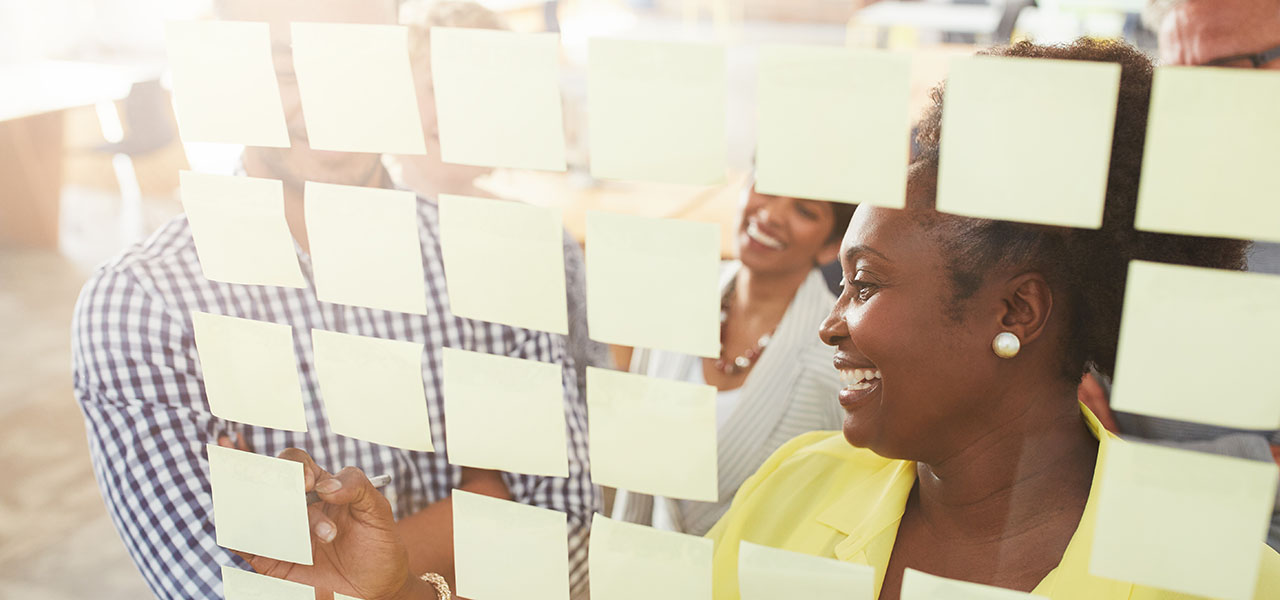
Dr Anne Adams, a Senior Lecturer in the Institute of Educational Technology at the Open University, works on cutting-edge research in (e)learning technologies and practices. In recent years, she has been developing an Evidence Café methodology. The cafés are designed to encourage greater and more effective knowledge exchange between academics and researchers, and practitioners and policymakers. MIAG is working with Dr Adams to create a set of free online short courses that teach how to run cafés and here, MIAG team member and PhD student Abiola George, talks about her experience of attending a recent design workshop.
Yes, but where is the evidence?
‘Everyone knows…’ is a common prelude to many a generalisation: taking one or a few facts and making a broader or more universal statement about it. This only works for the likes of Sherlock Holmes who can deduct on the spot from a scratch in the paintwork that there’s a mass murderer on the loose.
I can see how it is easy to make generalisations about things I know, especially when I feel the information is ‘out there’ for everyone to see. It doesn’t help that multiple layers of algorithms pool information from our online activities and create a bubble that determines what we see. One can then start to believe that everyone else is living in the same bubble and make assertions about how things are.
I like to think about people working in departmental or organisational silos as victims of this bubble. Familiarity with information, data and processes can lead to groupthink. This is the practice of thinking or making decisions as a group, resulting typically in unchallenged, poor-quality decision-making and assertions about subjects outside their scope without evidence to confirm validity.
Without cross-communication or cooperation with stakeholders in a value chain, potentially valuable data (in whatever form it exists) is missing as input to another process. This can result in decisions being made based on generalisations and there can be duplication of efforts along the chain, even in the same organisation.
One of the key ways a group of stakeholders can benefit from the knowledge they individually hold is to get them in the same room (in a manner of speaking) with expertly facilitated tools and techniques to get a discussion going. The Evidence Café is a methodology that has been designed to create a valuable opportunity for this sort of knowledge exchange. Stakeholders in a value chain have the opportunity to bring their knowledge together with the aim of co-creating new knowledge that’s backed by evidence to substantiate what is known. The methodology has been validated in a different variety of organisations in many countries around the world.
As part of the MIAG network, I have had the opportunity to participate in three Evidence Cafés in Kenya, Ghana and Nigeria and facilitated at the partner meeting in Mozambique, with stakeholders in the migration processes of each country.
It starts with a simple question – in our case ‘who is a migrant?’ – that gets the conversation started and then a few more follow on questions to build on the theme of the gathering. One of the key insights I gleaned from the first and subsequent cafés is that ‘data’ is more than just facts and figures; it’s stories, experience, procedures and a host of other things I would not have considered as sources of relevant data. The Evidence Café methodology then builds on the available ‘data’ by probing where it has come from, why it is believed to be true and if indeed in the light of other available data, it still holds true.
A case that stood out for me was the perception of the contribution of Nigerian migrants in other partner countries in the MIAG network. When the question was posed about the contribution of (Nigerian) migrants to their economy, different stakeholders with the same data set (Nigerian immigrants) described a spectrum that ranged from ‘they have brought new ways of doing business and opened up new markets’ to ‘they have contributed to the increase in criminal activity’. Further probing to uncover the evidence behind these claims challenged the participants to consider what they knew to be true (and provable) versus pockets of unsubstantiated ‘pub chats’. As an observer, facilitator and a Nigerian it was important for me to help keep the conversation moving without defending ‘my people’ and introducing a bias into the conversation. I found this very interesting.
The common thread that ran though all four cafés was that it generated very useful conversations between stakeholders that would not normally talk with each other and some fears of communicating without sharing sensitive information about their organisations were allayed. ‘Discussion objects’ (a conversational tool for building connections between stakeholders) were key to moving the conversation along. Networking was also a strong component for the attendees, and there were a few informal requests to facilitate Evidence Cafés within their respective organisations.
On 30 September 2019 I officially became an Evidence Café Champion (Fellow) after attending the fellowship workshop at The Open University alongside some colleagues from the MIAG network and OU academics and staff working in a broad range of roles. This certification equips us to facilitate Evidence Cafés independently or with support from the OU team when required. I look forward to opportunities to work with organisations in both the public and private sectors to understand how to translate their data into evidence and co-create new knowledge for improved decision making.